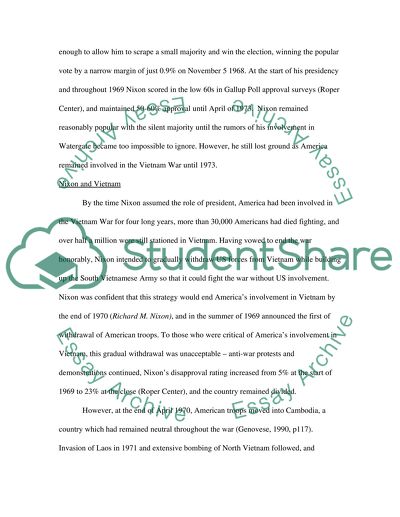Cite this document
(“The Nixon Era: Rebellion and Reaction in the 1960s and 1970s Essay”, n.d.)
Retrieved from https://studentshare.org/miscellaneous/1503873-the-nixon-era-rebellion-and-reaction-in-the-1960s-and-1970s
Retrieved from https://studentshare.org/miscellaneous/1503873-the-nixon-era-rebellion-and-reaction-in-the-1960s-and-1970s
(The Nixon Era: Rebellion and Reaction in the 1960s and 1970s Essay)
https://studentshare.org/miscellaneous/1503873-the-nixon-era-rebellion-and-reaction-in-the-1960s-and-1970s.
https://studentshare.org/miscellaneous/1503873-the-nixon-era-rebellion-and-reaction-in-the-1960s-and-1970s.
“The Nixon Era: Rebellion and Reaction in the 1960s and 1970s Essay”, n.d. https://studentshare.org/miscellaneous/1503873-the-nixon-era-rebellion-and-reaction-in-the-1960s-and-1970s.


